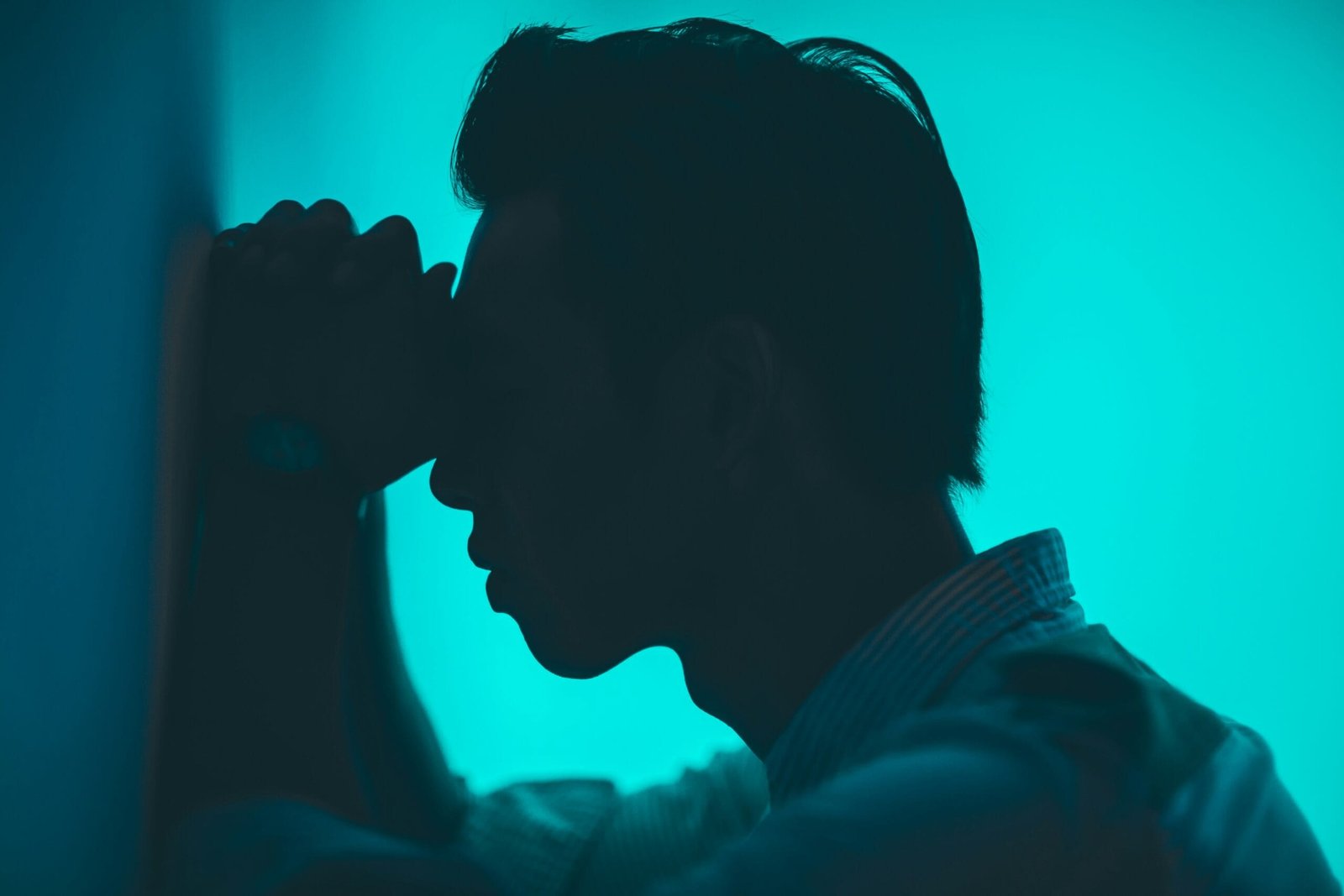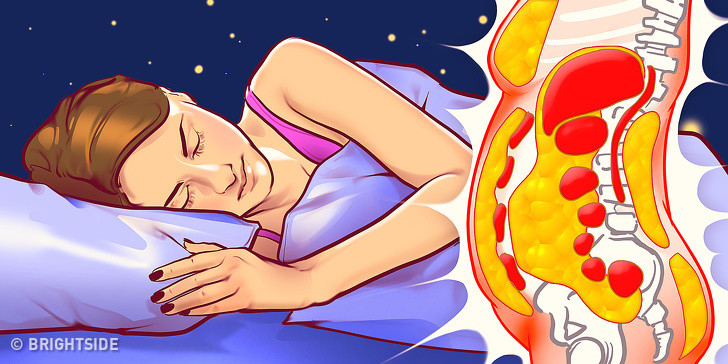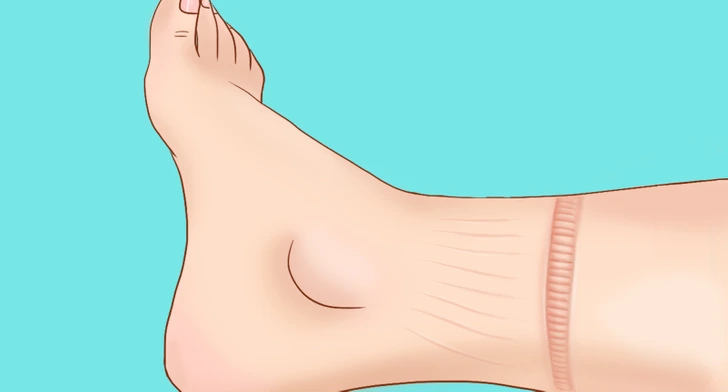Water is extremely important for your overall wellbeing and survival. In fact, water is making up about two third of your body as well. Functionality of all the organs in your body are controlled by water as well. If you live without water, every single cell, tissue and organ in the body will deplete and stop functioning.
Many people don’t seem to be aware once their body lacks adequate water. How can you know if you are drinking enough water on a daily basis? That’s where you need to go ahead and take a look at these warning signs.
10. Headaches and lightheadedness
People who don’t drink enough water per day will either have to experience headaches or lightheadedness. That’s because lack of water can reduce the flow of blood as well as oxygen into the brain.
Instead of reaching for a pill once suffering from a headache, drink a glass of water. If the headache is because of dehydration, it’ll get away shortly.
9. ‘Brain Fog’ or poor concentration
When you don’t drink enough water, the ability you have to concentrate will also deplete. Therefore, all the decision making capabilities that you have will be ruined. This can also create a negative impact on your mood and memory. It can also lead you towards symptoms of brain fog, like forgetfulness and problem focusing, thinking and communicating.
8. Bad Breath and dry mouth
You will have to experience bad breath due to lack of water consumption. That’s because reduced water consumption can force your body to produce less spit. Hence, more bacteria will grow inside your mouth. You might have a xerostomia together with bad breath.
7. Constipation and other digestive issues
Water has got the ability to lubricate your digestive system. If you don’t drink enough water, you will have to experience constipation and many other health issues in the digestive system. Lack of water in the body can also cause heartburn and upset stomach.
6. Sudden food cravings
When you don’t drink enough water, a desire to have a salty treat will be created. That’s where you will get sudden cravings for food. In such a situation, you are encouraged to drink something that contains sodium right before grabbing a snack the next time you have unexpected hunger pangs or food cravings.
Because of loss of water and electrolytes in the body, desire a salty treat is caused. simply drink a sports drink that consists of sodium, otherwise you can prepare your own lemon water by mixing the juice of one lemon in a glass of water together with one teaspoon of salt.
When your body experiences an issue with glycogen production, you’ll experience cravings for something sweet. you can select fruits like watermelon, papaya or berries that are sweet as well as high in water content.
5. Reduced urination and change in color
Believe it or not, but your body is perhaps lacking water if you’re not using the toilet every few hours. A healthy quantity of water intake leads to regular urination, about four to seven times every day.
Also, you must keep an eye on the colour of your urine. it’s a necessary symptom of your hydration level. Clear or pale urine indicates a well-hydrated body, whereas dark yellow or amber-colored urine indicates concentrated urine and is sometimes a signal that your body lacks water.
4. Fatigue and lethargy
A dehydrated body can make you feel lethargic and lead you towards feelings of fatigue. That’s because reduced water intake can create low blood pressure inside the body. Moreover, Lack of oxygen causes sleepiness, fatigue and a lethargic feeling.
Additionally, when you are dehydrated, your body has to work much too hard to ensure proper blood circulation, transporting nutrients and even breathing. Expending extra energy makes you tired faster than usual.
One of the easiest ways to stay alert and energized is staying hydrated, so keep your water bottle handy.
3. Joint and Muscle Pain
People who don’t drink enough water will also have to experience joint and muscle pain. That’s because water is important for the overall health of your joints. Otherwise, the joints will start grinding against each other.
If your body is well hydrated, then your joints will handle unexpected movements, like running, jumping or falling awkwardly, without any pain.
Depletion of fluids through perspiration can cause muscles to contract, resulting in cramps.
2. Scaly, dry skin and lips
Water plays a major role behind maintaining the overall smoothness of your skin. Reduced water intake can lead you towards dry and scaly skin. The reduced sweating can also lead you towards this condition. furthermore, because water aids in flushing toxins from the body, dehydration increases the chance of acne, eczema and psoriasis.
Another sign of dehydration is dry and cracked lips.
1. Accelerated heartbeat
Dehydration has a direct effect on heart rate. With reduced water intake, you will notice that your heartbeat increases. This fact has been proven from studies conducted in the past as well. The main reason behind increased heart beat is low blood pressure.
Furthermore, dehydration causes modifications in electrolytes present in your body, resulting in low blood pressure. Heart palpitations become quicker due to extra stress on your body. this may be horrifying and cause anxiety and panic. attempt sipping water slowly if you’re feeling your heart beating faster. Consult your doctor right away if the matter persists.
Tips to avoid dehydration:
- You should drink lots of water and different fluids on a daily basis. the amount of water you got to drink typically depends on variety of factors, like the climate in which you live, how physically active you are, and your overall health.
- Start your day with a big glass of water (room temperature) and drink one full glass of water before each meal.
- When you are busy and sometimes forget to drink water, you can set a reminder to drink a glass of water a couple of times every day.
- Carry your own water bottle, no matter where you’re going.
- Along with water, start including some water rich vegetables and fruits in your diet.
- Try not to drink beverages which will cause dehydration, like alcohol, energy drinks and others that contain caffeine.
- If you’re affected by a fever, vomiting or diarrhea, increase your fluid intake to stop severe dehydration.
- You must consult a doctor right away if you’re experiencing symptoms like not passing urine for over eight hours, a speedy or weak pulse, extreme thirst, and dizziness.







Leave a Comment